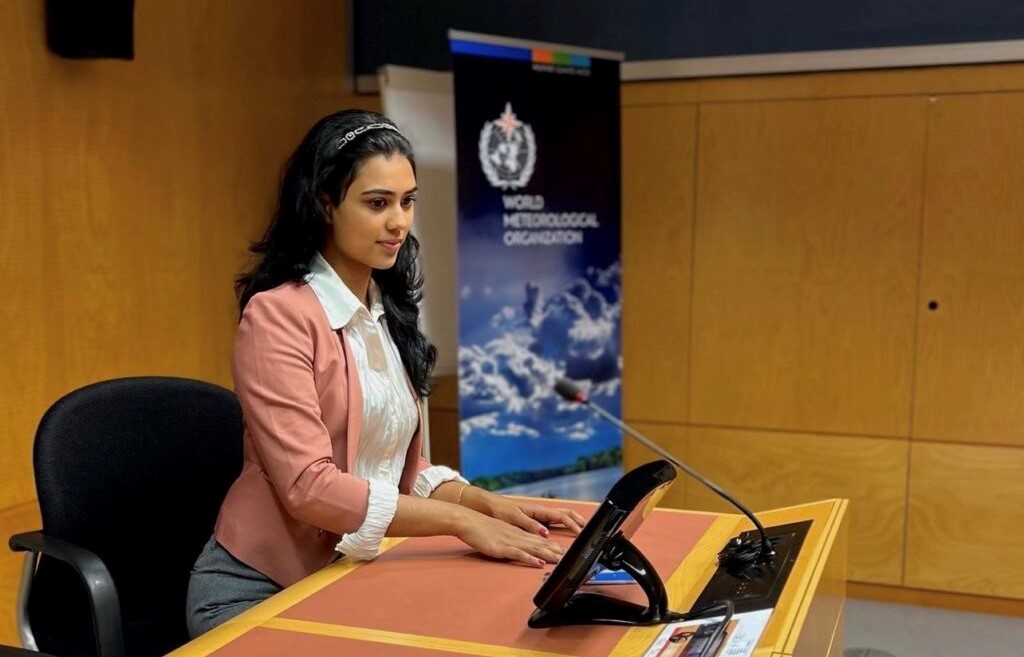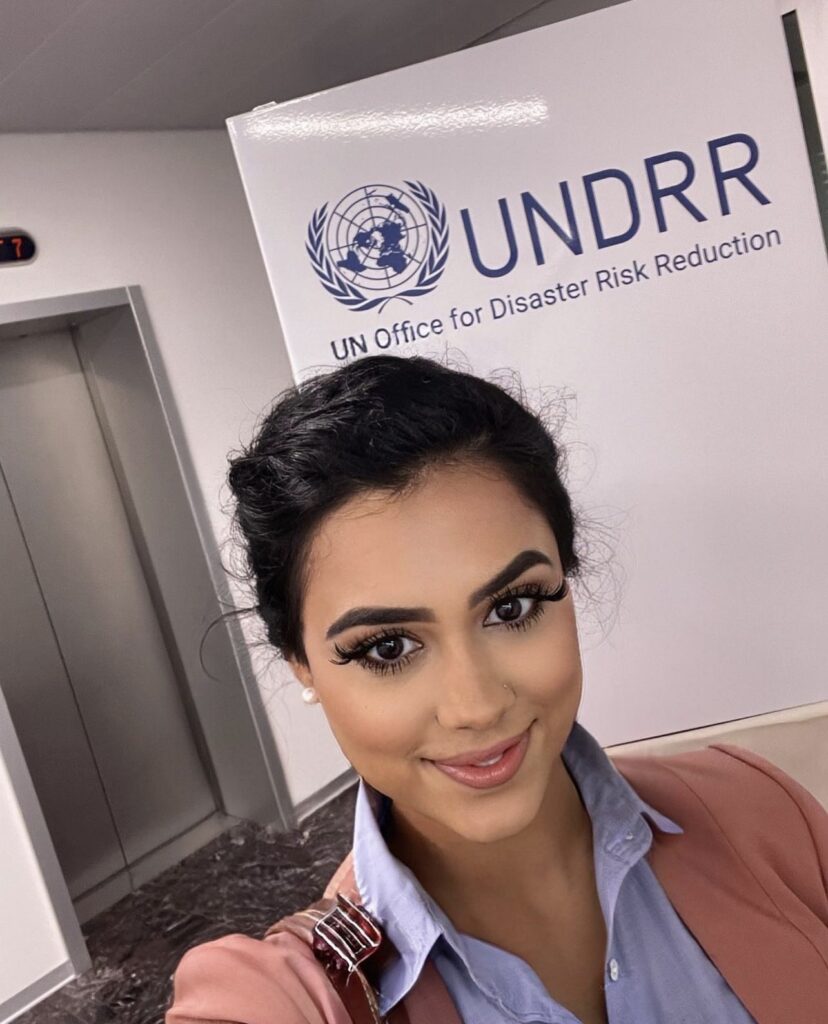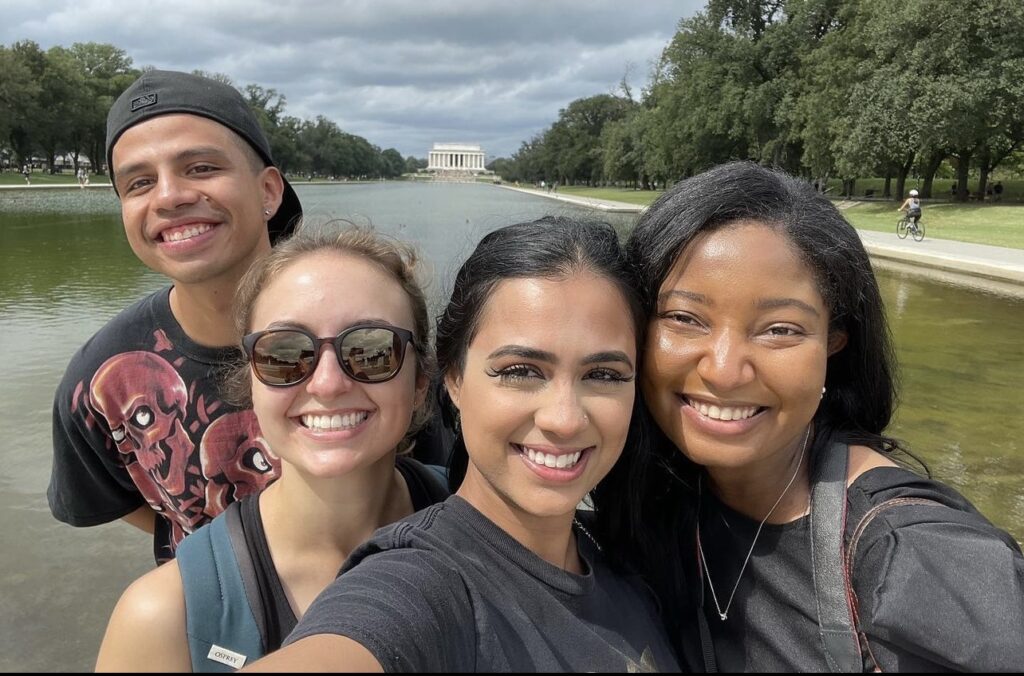Diplomacy & international relations program leads to ‘endless opportunities’
March 28th, 2023 | SIT Graduate Institute
Sarah Rauf is a student in the Diplomacy and International Relations master's program at SIT Graduate Institute. She shared her experience since starting the program in fall 2022.

My experience in the Diplomacy and International Relations master’s program at SIT Graduate Institute has been exciting and life-changing. After graduating from Virginia Commonwealth University in 2020, I knew I wanted to pursue my passion for humanitarianism, diplomacy, and international politics with a master’s degree. I cannot emphasize enough how this program has given me endless opportunities as my career paths unfold.
My passion for humanitarianism first arose when the Syrian refugee crisis occurred in 2016 when I was 16 years old. I was sitting at the dentist’s office with my dad when I saw news of an ongoing war in Syria broadcast on the office television. It was then I realized how little I knew about devastating wars that were happening in the present day. I turned to my dad and asked why no one seemed to be reacting or doing anything about the situation. I then decided I would do something on my own to spread awareness in my own community.
I didn’t know much about politics at the time, so I started to talk to leaders and support groups, such as my local key club and mosque. We worked together to give public presentations on the refugee crisis to spread awareness, which grabbed local media attention. As a result, we were able to raise money and supplies for Syrian refugees. I realized how much difference just one person could make, so I continued to volunteer and give back to my community.
This led me to become more involved in student government at both my high school and the community college I attended at the same time. Through these activities, I had the chance to meet former Gov. Ralph Northam, who is also a pediatric neurologist. I was inspired by the way he combined a career in both politics and health, and decided to pursue these fields in my own way.
I went on to obtain two bachelor’s degrees, one in biochemistry with a minor in biology on the pre-medical track, and the other in political science with a concentration in international affairs.
When COVID-19 emerged, I decided to let go of the science field temporarily to chase my passions even further and pursue higher education to help me achieve my goals of becoming an ambassador for the United Nations High Commissioner for Refugees in Syria. I came across the global master’s in Diplomacy and International Relations from SIT Graduate Institute, and the incredibly unique program sounded too good to be true: earning a graduate degree while traveling to various countries, immersing myself in their cultures, and completing a practicum to help increase my chances of employment after graduating…all under a year!

I turned to my sister, Aemen, for advice. “Any school can give you an education, but this program is the only one that will take you abroad for the entirety of its duration, and the experiences you’ll gain overseas are much more valuable than what you will learn in the classroom,” she said.
Once I embarked on the program in fall of 2022, her words proved true, as my experience has been unique and beneficial in numerous ways. First, there are several hands-on policy briefings every week with different ambassadors, intergovernmental organizations, nongovernmental organizations, federal agencies, and more. Because of this, the networking opportunities and guidance are endless; it is impossible to not connect with someone working at high levels in the diplomacy field. These leaders take us graduate students very seriously and have graciously offered us assistance with applications, cover letters, recommendations, and much more.
Along with networking, there is a requirement to complete an internship—the practicum—at the end of the program. As I apply to internships at various high-level organizations such as the United Nations and the U.S. Department of Defense, my goal is to pursue fieldwork that helps cement my studies in real-world contexts.
Finally, there is also a research capstone proposal due right before graduation. This opportunity allows us to demonstrate our intellectual curiosity and advancement in our field of interest while also working in the development of that field. This is a great asset should a student wish to pursue additional higher education, such as a PhD. My research capstone will analyze the opportunity correlation (such as jobs) to the races and religions of Syrian and Ukrainian refugees with the hope of bringing awareness to discriminatory policies at NGOs.
The incredibly unique program sounded too good to be true: earning a graduate degree while traveling to various countries, immersing myself in their cultures, and completing a practicum to help increase my chances of employment after graduating … all under a year!
Aside from the professional opportunities through the program, the staff has made it easy to balance traveling among different countries. They have given me and my peers much advice and have been understanding of our work-life balance. They have even become professional connections and friends to me and my peers, with whom I have also grown close due to the immense amount of time spent together traveling, studying, being each other’s constant emotional support, sharing once-in-a-lifetime opportunities, and so much more.

And due to my additional educational background in science, I have even been able to network with federal science agencies, such as the Department of Defense’s cyberspace security program, the European Union’s department of nuclear atomic energy, and several other organizations. This has brought me full circle by demonstrating how politics is involved in every field—even science and health. The World Health Organization, for example, allows all member nations to come together to connect their scientific research for the promotion of health. Now, I have an even deeper well of opportunity should I one day choose to pursue a career that combines my passion for international politics and diplomacy with my knowledge of science and health.
Having the privilege of this educational experience has opened my eyes to realizing that you don’t need to choose just one passion or career path. I now feel empowered to embark on any paths I choose, whether they be diplomacy, working with science agencies, or both. There is no permanent path in life, and the possibilities have really become unlimited thanks to this program. I wish I could stay in this program for a lifetime of traveling, learning, and working for my passions, so I am soaking up every moment of this incredible adventure.
